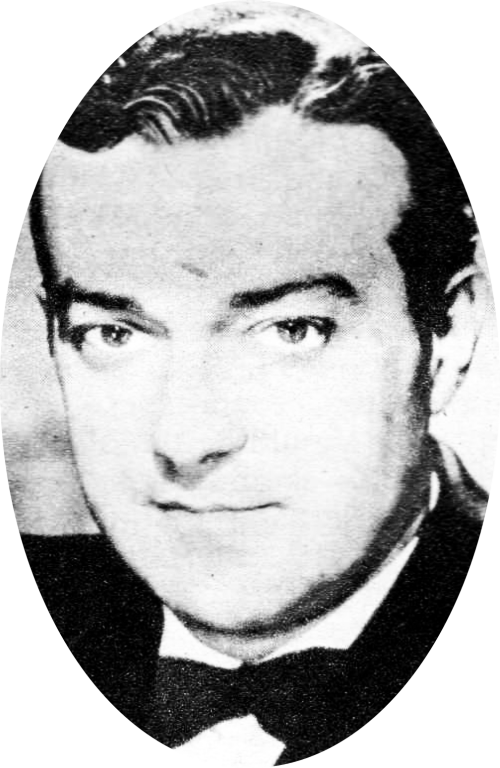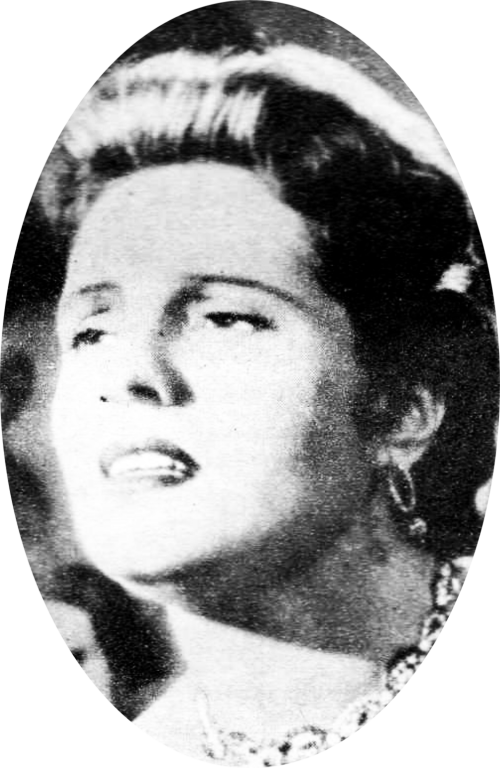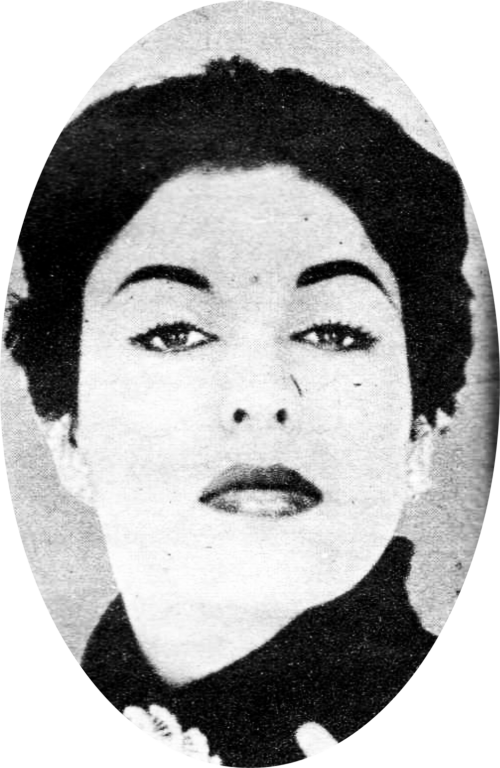Chelsea top-line
A host of stars grace the Chelsea Palace Theatre

Content note: casual use of racist language.

THREE top international stars head Granada’s new Chelsea at nine series, which comes back with a bang this week in a new spot on Thursday every three weeks.
And supporting them will be many old favourites among the team that has proved since the first programme in September, 1957, that top artistic talent of all kinds can be mixed — without frightening away the customers.
Headliners this week include American comedian Dave Barry, Portuguese singer Amalia Rodrigues, and San Francisco jazz and ballad singer Ruth Olay.

Dave, who after his appearance at the London Palladium some time ago was described as a “brilliant humorist,” bases his routines on the everyday happenings of “Mr Average.” The things that happen at home, the problem of money, and the usual trials and tribulations with the wife and children.
He does a great deal of his own writing. He is, too, an amateur cartoonist and his sense of satire can be detected in his drawings as well as his performances.
The strong, passionate, untamed voice of Fado singer Amalia Rodrigues has taken her from the market places and cafes of Lisbon to concert programmes as a star solo artist in most of the European capitals. She explains: “Fados are Portuguese folk songs that have been handed down from generation to generation. In Portugal, if we are bored, we sing; if we are lonely, we sing. Fados tell of hopeless hearts, sadness, loneliness, passion, jealousy, love, pain and longing. Fado is all that exists.”
Ruth Olay makes her first British TV appearance in Chelsea at nine. She was born in San Francisco, the daughter of a rabbi. At one time she was secretary to a Hollywood scriptwriter.
Bandleader Benny Carter “discovered” her singing in a “jam” session and her first job was with his band. Soon after came her first recording. That was in 1953. Some years later she reached the bestseller class with Singin’ in the Rain. “I have been interested in show business ever since I can remember,” she says.
Her other interests include reading science fiction, record collecting, swimming and volley-ball.
As well as Transatlantic stars, more and more Continental entertainers are being brought over to appear in the show. Many have to be booked six or eight months in advance.
Those who decide on the balance of the programme and the selection of artists are Ann Suudi, Granada’s casting director, and producer of the show, Eric Fawcett. They have recently returned from a tour of Sweden, France and Denmark in a search for talent.
Chelsea at nine is rehearsed and staged in what was the Chelsea Palace Theatre in King’s-road, London.
After the Palace opened in 1902, patrons enjoyed in the “luxuriously appointed and handsomely decorated theatre” (to quote a 1904 bill) everything from all-in wrestling to a season of Shaw plays.
The late Yvonne Arnaud (billed as “a new French artiste”), Mrs Patrick Campbell, Gerald du Maurier and G. H. Elliott, the Original Chocolate-Coloured Coon, have all played at the Palace.
George Robey, Harry Tate, Charlie Chaplin (playing in Fred Karno’s show: Twice Nightly), Sir Harry Lauder, Gracie Fields and Nellie Wallace are some more famous Chelsea Palace names.
The Palace closed as a variety theatre in March 1957. Five months later it became officially known as the Granada.
The exclusion of the more “obvious” variety acts from the show has not narrowed the programme’s scope. In fact, the aim of the producers has always been to increase the show’s individuality by featuring artists not normally associated with variety.

Since its inception, Chelsea at nine has presented internationally famous artists from every field of entertainment. For many of them, it meant a first British TV appearance.
Douglas Fairbanks compered the first and many of the early shows, introducing such big names as Pouishnoff, the Rumanian Folk Dancers, and Richard Tucker, “Brooklyn’s Caruso.” Other comperes have been Bernard Braden, Jack Hawkins and the current host, Lionel Murton.
More scoops over the past 16 months have been comedienne Anna Russell, who came over from the US for a one-night appearance, Ram Gopal, the Indian dancer, Yehudi Menuhin, and Maria Callas.
Yehudi Menuhin was booked at two days’ notice. His appearance was scheduled at a time when there was a ’flu epidemic in England. Most of the cast, except for Charles Laughton, were affected. Menuhin, then appearing at the Festival Hall, was asked to take part. He agreed and was delighted to find that Laughton, an old friend, was sharing the bill with him.
Other famous personalities who have taken a bow in Chelsea at nine are Sister Rosetta Tharpe, Sari Barabas, the Hungarian opera star, violinist Isaac Stern and Dame Edith Evans. Excerpts from successful London plays have frequently been presented and viewers have been treated to a wide variety of current comedy and dramatic productions.
“Regulars” in Chelsea at nine since it began have been The Granadiers, the song and dance group (seven boys and six girls) who work under the direction of 33-year-old Cliff Adams. The girls and boys who make up the group have achieved a reputation for clever timing and excellent singing.
Cliff Adams formed the group especially for Chelsea at nine. He decides on a song, arranges it, has a discussion with choreographer Mark Stuart and producer Eric Fawcett. When all three agree, a routine is worked out.
“There have been few changes in the group since it started,” said Cliff, “But I always audition everyone who writes to me and wants to be in the show.” Chief assets for a would-be Granadier: Good appearance and adaptability. Their dance style is a blend of movement and music aided by spirited teamwork.
By November 18 last year The Granadiers had sung and danced their 100th Chelsea at nine number.
Peter Knight and his orchestra have also appeared in every show. Peter is the tubby, ex-Inland Revenue clerk whose parents wanted him to be a concert pianist. He says: “This is one of the most interesting jobs I’ve done. Musically it has immense range, from opera to ‘pop.’ We are kept on our toes, too, because we have to cope with slick American arrangements.”









